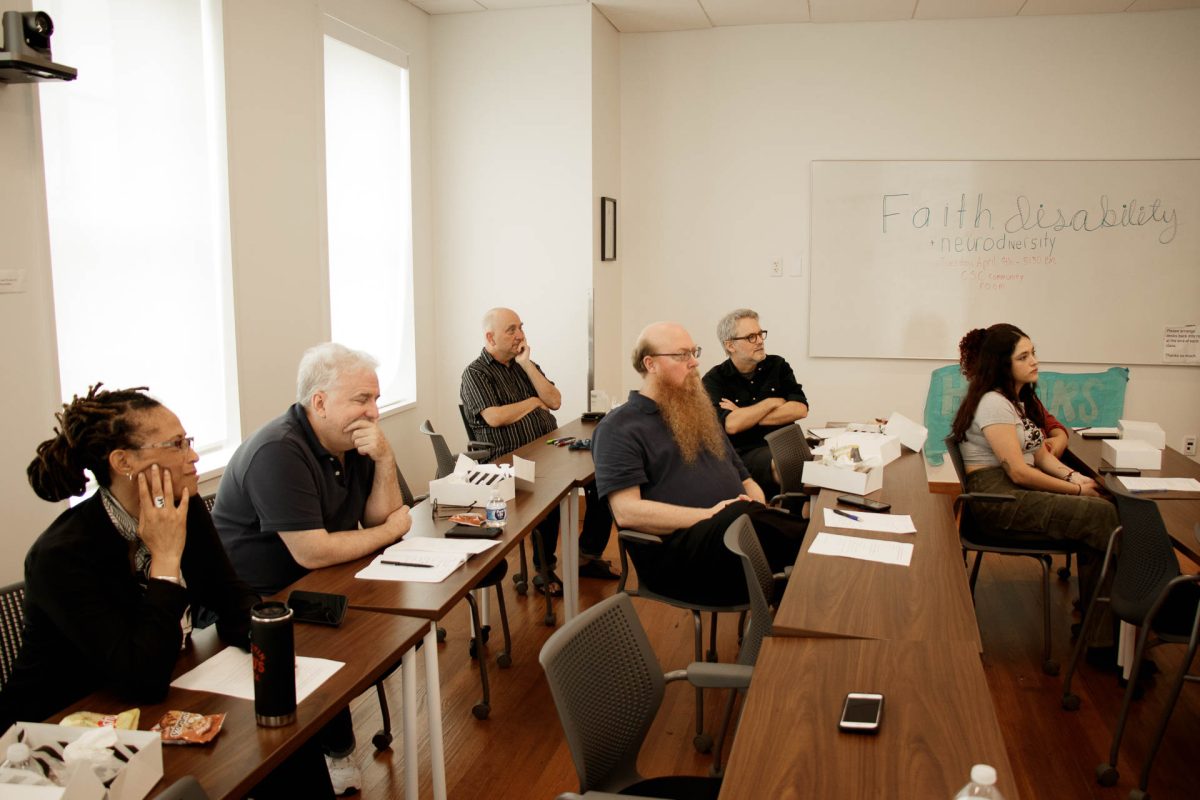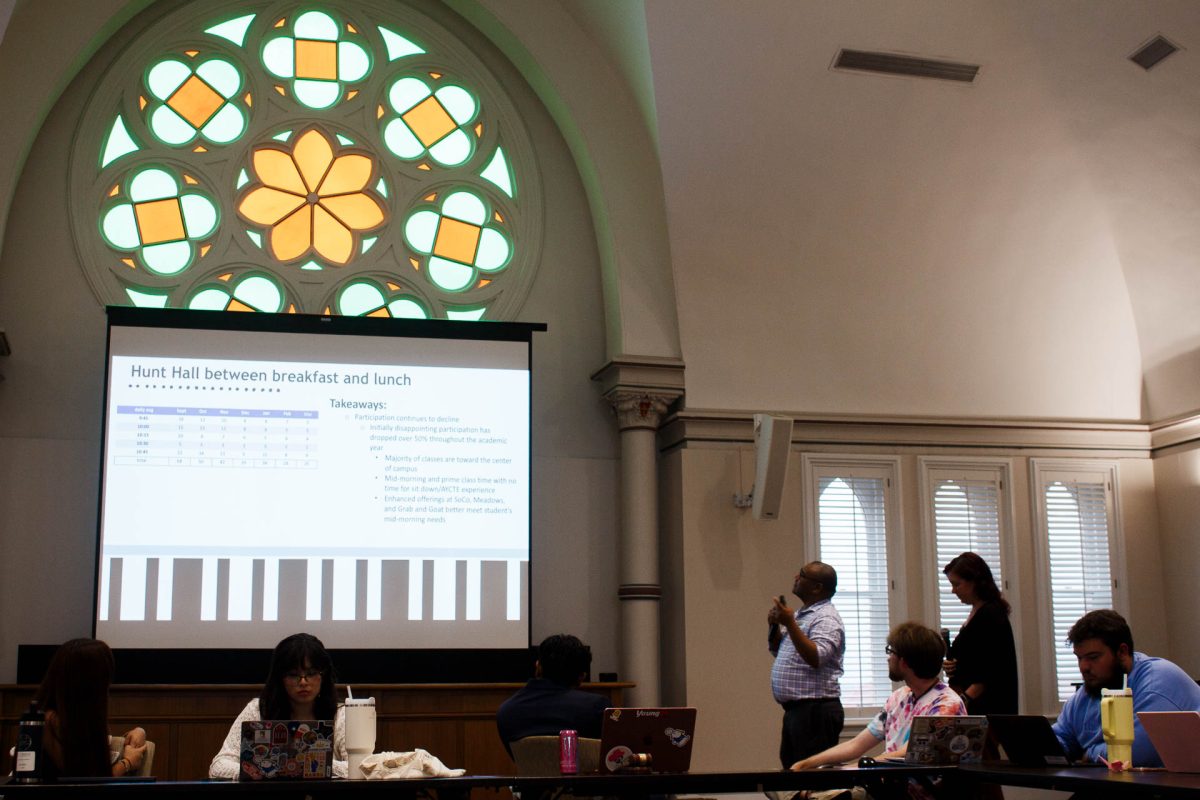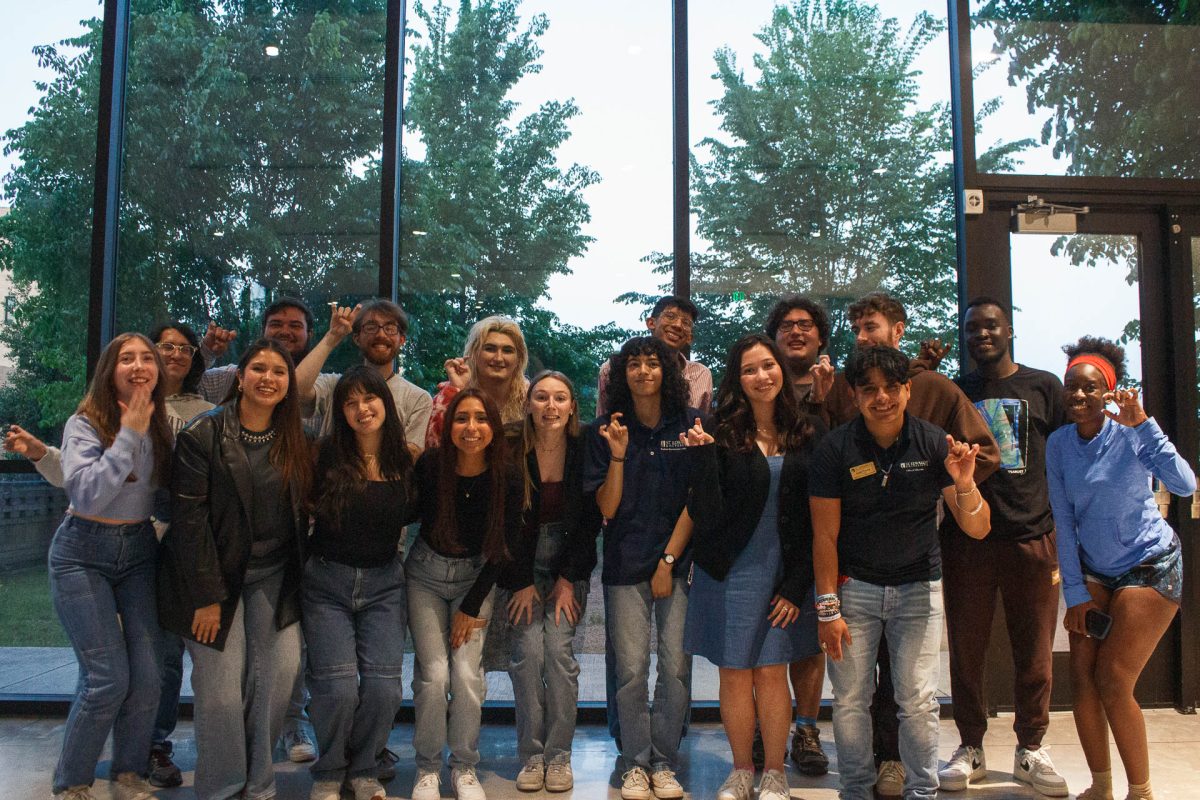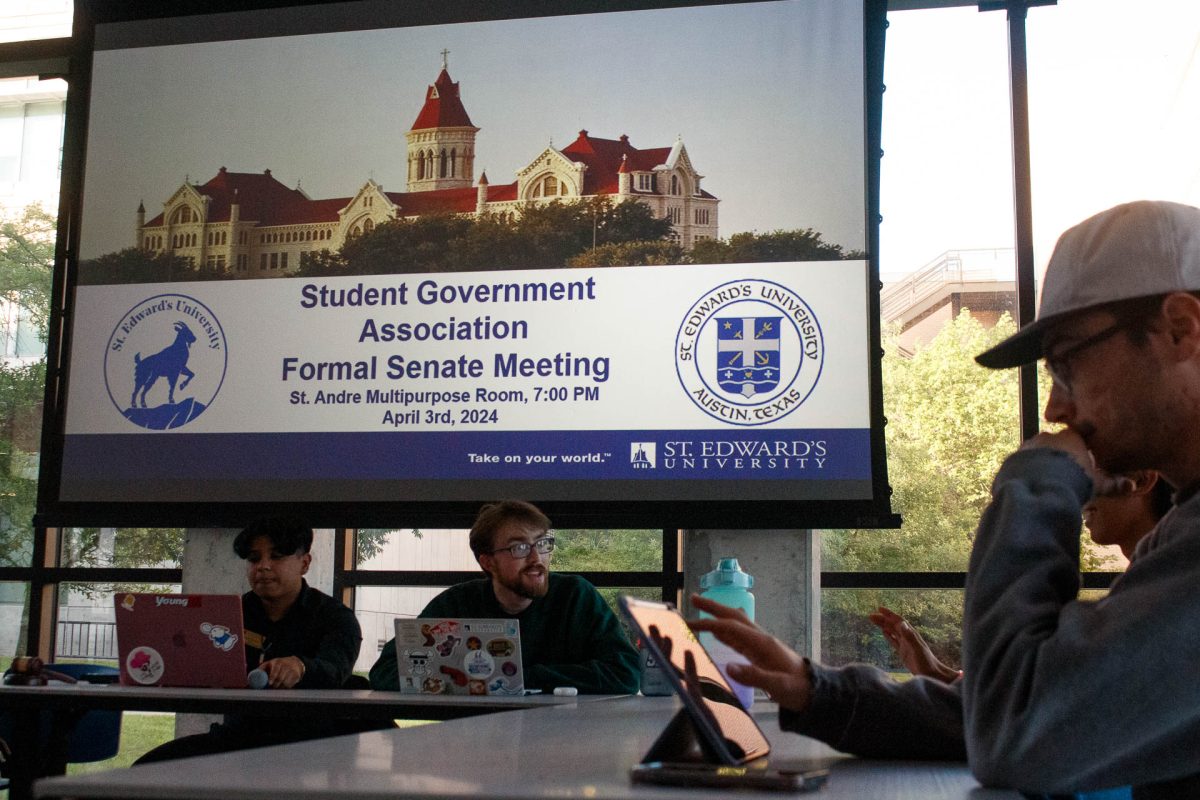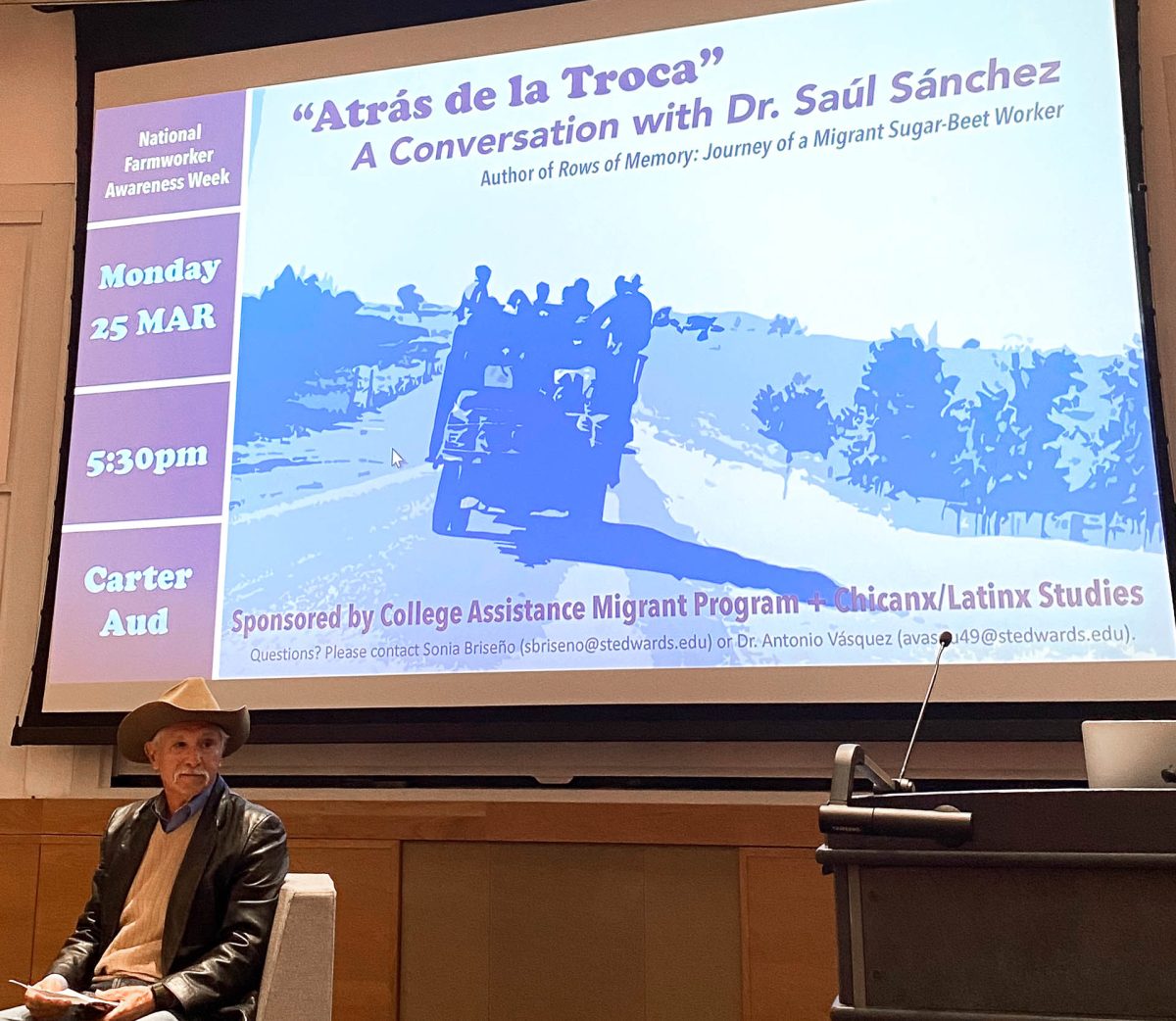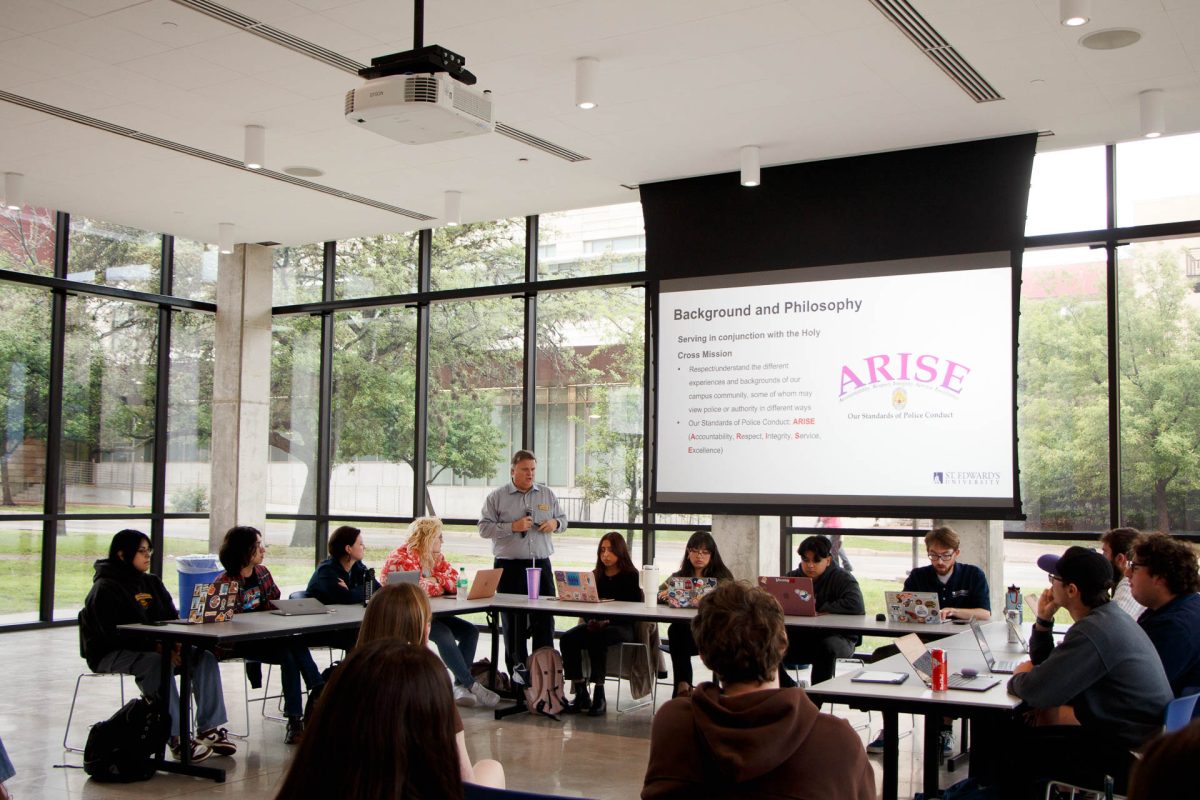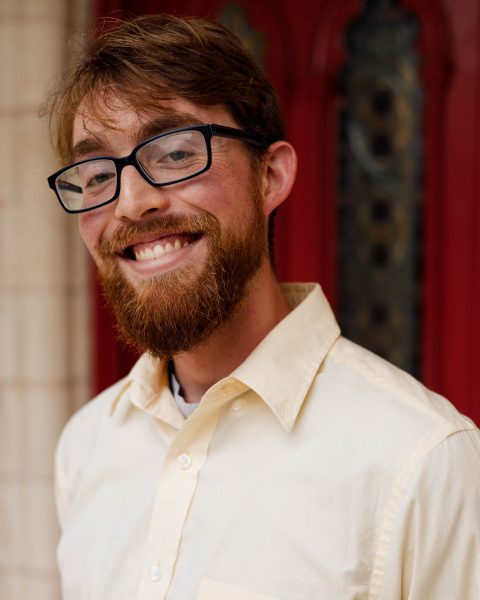The final lecture of the newly rebooted Food and Philosophy series was given this past Monday in Holy Cross 402. Titled “What Can Autistic People and Robots Teach us About Love?,” the lecture focused on approaching friendships in different ways – ways similar to how those with autism might.
Given by Austin Community College (ACC) adjunct professor of philosophy Ellen Stansel, the lecture set out to address troubles with relationships that people have been experiencing, many of which were exacerbated by COVID-19, according to Stansel. A variety of historically-present social structures aren’t utilized as much anymore; St. Edward’s University Professor of Video Game Development Bob Bryant used a succinct metaphor to sum up these issues: “Men don’t go bowling anymore.”
Stansel brought forth the classical ideas of friendship proposed by ancient Greek philosopher Aristotle in the Nicomachean Ethics as an initial framework. According to Aristotle, friends must be mutual, proportional and intentional from both parties.
Stansel proposed an alternative to these. Using common friend-making tactics and relationship evaluations among autistic people as a starting point, she suggested that friendships are, in actuality, formed mostly from peoples’ own conceptions. According to Stansel, people should base their friendships almost entirely on how others make them feel instead of the reverse.
Her example for this was Quasi, a stuffed panda that used to belong to her autistic son.
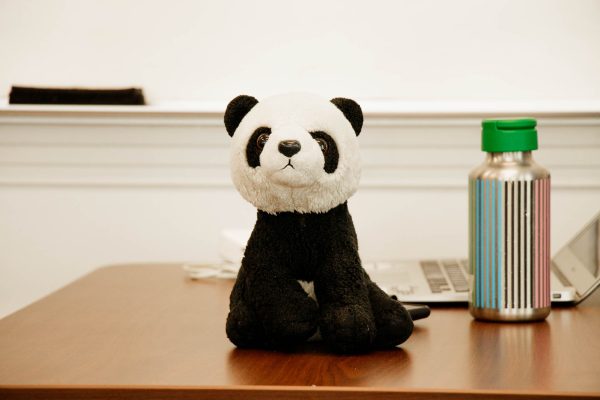
“Yes, Quasi was his friend, Quasi’s aware, Quasi has feelings, Quasi’s having fun being thrown up at the ceiling,” Stansel said. “He really came to take on a personality.”
She argued that, since our perceptions of friendships with other people are “largely of our own creation,” then a friendship with an inanimate object can be fabricated as well. As long as that object gives the same sort of feelings that a person might, it could be classified as a friend to that person.
She suggests three tactics for others to bring about these sorts of non-traditional — or simply just new — friendships.
“Be willing to explore friendships with more than just people in your immediate peer group,” Stansel said. “… It might be (something like) your neighbor’s dog. … I recommend, in your friendships, that you just dive in. …Your friendships are largely of your own creation, so build a beautiful friendship; love your friend. … Finally, … what matters most is how we feel around that person.”
The last 20 minutes of the hour-long session was a dedicated Q&A for the audience of five St. Edward’s professors and two students to ask questions. Many of the questions revolved around how far the idea of a one-sided “friendship” could go and who or what it could apply to.
“This … tapers into the subject of parasocial relationships,” one student said. “When it comes to celebrities and how whatever a celebrity gives (to the public), (some people) take it as, ‘This is something that is given to us, so (we’re) going to insert ourselves into their lives,’ in a way.”
After questions and the following discussion, those present then seemed to agree that a final prerequisite for friendship had to be that the two parties in a friendship must have met one another.
“I’m always worried that definitions get too big and cover too many things,” professor Mark Cherry said. “For example, I think relationships are really important. But it’s not clear to me that all (of them) fit into the category of friendship.”
The Food and Philosophy lecture series has concluded for the semester. Be on the lookout for more events from the School of Arts and Humanities, which can be found on Instagram as @seuartshum.


